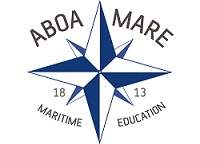A new research platform established by Novia University of Applied Sciences and the Fraunhofer CML develops intelligent maritime solutions for the needs of the Finnish Maritime Cluster in cooperation with TechCampus Turku and companies in the field.
The applied research and product development of the Finnish Maritime Cluster will be diversified with the start-up of the new intelligent maritime research platform (Fraunhofer Innovation Platform for Smart Shipping FIP-S2@Novia) at Aboa Mare, Novia UAS’s maritime campus, in June. Mirva Salokorpi from Novia, one of the two directors of the FIP-S2@Novia, is enthusiastic about this new development in the Finnish
innovation field.
“Fraunhofer CML is one of the leading maritime research centres in Europe and globally. They have extensive networks, a large number of business partners and the ability to make strong applications for EU funding.”
Fraunhofer CML is part of the Fraunhofer Society. It is the strongest applied research organisation in Europe, with more than 75 institutes specialising in various fields of technology in Germany and a global cooperation network.
The other director of the new FIP-S2@Novia, Hans-Christoph Burmeister from Fraunhofer CML, has cooperated with Novia for years. He is impressed with Finland’s strong and innovative maritime cluster and the willingness of companies to invest in research and product development.
“In addition, the Finnish government and authorities have a positive attitude towards the development of autonomous shipping, for example, which makes the country interesting to us.”
The new research platform combines Fraunhofer CML’s technology expertise with Novia’s experience in the maritime industry. According to Salokorpi, only a few research organisations in the world can take into account both the user and the technology to such an extensive degree.
Testing, product development and simulations
The new research platform will focus on research, product development and testing related to intelligent maritime technologies. Its focuses also include maritime simulations, a field in which both Novia and Fraunhofer have strong expertise.
“In cooperation with Fraunhofer, we are developing the European Maritime Simulator Network EMSN for training and research. We will use the network for research projects,” Salokorpi explains.
Digital twins are the third theme of FIP-S2@Novia. Digital twins are virtual copies of a ship, part of a ship or ports that can be used to examine the operation of various systems, for example, or energy consumption. The research platform cooperates with the University of Turku, Åbo Akademi University and Turku University of Applied Sciences. Burmeister from Fraunhofer CML is pleased to see that all the universities in the region want to be involved.
“A local research and product development ecosystem for autonomous shipping plays a role in the new Fraunhofer Innovation Platform.”
Applied research in cooperation with companies
Salokorpi emphasises that the new platform focuses on applied research and cooperates with companies within the Finnish Maritime Cluster. She is aware of a number of companies that want to start cooperation immediately.
Meyer Turku is one of these companies. According to Mika Heiskanen, Head of Production, cooperation in research and product development with various operators is important in ensuring that Meyer and its partners will continue to meet the requirements of the cruise industry.
“The only way to ensure that we are at the forefront of technology expertise is to promote our industry by networking openly.”
Heiskanen believes that Meyer’s future cooperation with the research platform will be related to the automation of cruise ships and the digitisation of products. He thinks that the local platform can also offer opportunities for the companies of the Finnish Maritime Cluster to cooperate with other institutes of the Fraunhofer Society.
Towards a permanent research cooperation
The new research platform will start operation under a five-year agreement. According to Burmeister, the platform’s level of success in establishing its position in the field of applied research will be assessed towards the end of the agreement. He hopes that there will be a team of 10–15 researchers working for FIP-S2@Novia in five years’ time.

